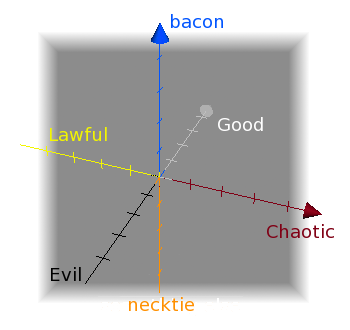mentalgymnast wrote: I think that the fact that it appears that God doesn't intervene in the world when we THINK HE SHOULD could very well be a/the root cause for choosing the atheistic/agnostic path through life. Choosing to believe "that it's in God's hands" is the tougher way to travel, to be sure. It takes faith and trust in a God who is a lot bigger and maybe even a bit more intelligent than us.
Then you have surrendered any basis for asserting that the Mormon god is omnibenevolent---which is in fact what the LDS Church asserts. E.g.,
Gospel Principles, (2011), Chapter 1: Our Father in HeavenGod is perfect. He is a God of righteousness, with attributes such as love, mercy, charity, truth, power, faith, knowledge, and judgment. He has all power. He knows all things. He is full of goodness.If you don't understand how your deity decides when to intervene to alleviate human suffering---particularly human suffering that your omnipotent deity either allowed to happen or caused to happen, which amounts to the same thing---then that means your deity's sense of morality is inscrutable to you. You don't have this deity's perspective. You only have your own perspective, which by your own argument is incapable of measuring your god's morality. Since your perspective of morality is incapable of evaluating your god's, your god is not righteous or good in any sense that you can perceive. Instead, according to your own arguments, your god follows a
blue and orange morality.
Unfortunately, Mormon theology holds that our sense of morality comes directly from the Mormon god: the Light of Christ.
Gospel Topics: Light of ChristConscience is a manifestation of the Light of Christ, enabling us to judge good from evil. The prophet Mormon taught: "The Spirit of Christ is given to every man, that he may know good from evil; wherefore, I show unto you the way to judge; for every thing which inviteth to do good, and to persuade to believe in Christ, is sent forth by the power and gift of Christ; wherefore ye may know with a perfect knowledge it is of God. . . . And now, my brethren, seeing that ye know the light by which ye may judge, which light is the light of Christ, see that ye do not judge wrongfully; for with that same judgment which ye judge ye shall also be judged" (Moroni 7:16, 18).Under Mormonism's own terms (at least, the LDS version of Mormonism), Elohim has given people just enough divine spark of conscience to perceive him as acting in ways that are inconsistent with being omnipotent and omnibenevolent (which is exactly what the problem of evil is). Why would Elohim give us a divine sense of justice in just the right amount to be bothered by his allowing and/or causing to happen wholesale suffering, in various degrees, all over the world? Did he do this because he's incompetent, which contradicts the dogma that he's omniscient? Or because he's trolling us, which contradicts the dogma that he's omnibenevolent? Or because he has a sense of right and wrong that we can't comprehend, which contradicts the dogma that he's omnibenevolent because we have no basis for determining whether he actually is all good?
To be fair, mentalgymnast, neither your religion in general nor your denomination in particular have given you any particular insights or answers to the problem of evil. If only there were some kind of living spokesman for God who could receive some kind of answer to these questions.
Oh, but we do have Alma the Younger indicating to Amulek that the Mormon god lets helpless women and children get tortured to death so that he will be justified in his anger against the people who are torturing them to death. Right before the Mormon god uses his mighty power to save Alma and Amulek from the same fate. So there's that.
